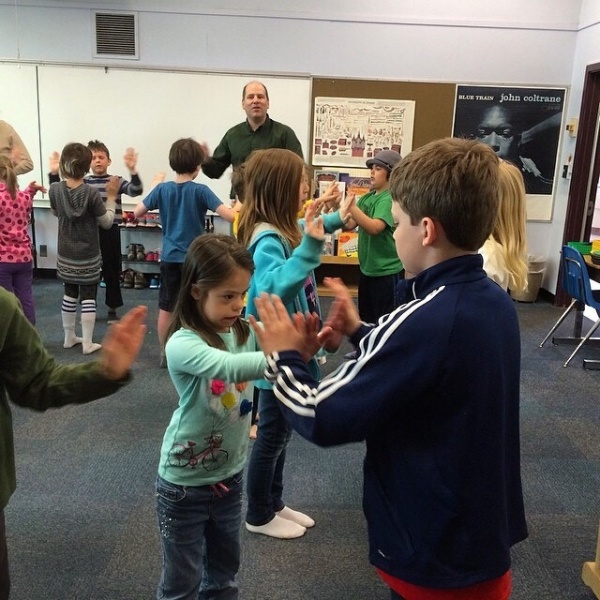Whenever hear the question, “Is teaching a science or an art?” Invariably the answer is both. That seems reasonable. But what if you ask a musician “Is music a science or an art?” Most people would lean heavily toward it being an art. Seems to me the answer should still be both. But obviously since we classify music as a mostly subjective discipline designed to create works of beauty we deem musicians as artists.
So why do we consider teaching more of a hybrid? I’d argue there’s not much difference than what we typically think of as art and that teachers are really better viewed as artists.

Taking music and musicians as the example, we view them as artists because we tend to focus on what they do that’s unique and personal. However there is a great deal of science that goes with it. I use the word “science” here to refer to the structure, the proven elements common in most forms of music. Things like notes, chords, song structures, chorus, verse, bridge, etc are all constraints that most musicians use. They take these elements, learn the basics and then distinguish themselves but creating unique works and interpretations. The more you understand about the craft, the more you appreciate the nuances and talents of the individual artist. When examining the “professional” or skilled musician, we spend little time focusing what they do that’s similar to other artists and instead appreciate and even critique the elements they offer that are unique.
Artists are also usually seen as performers. Their work is generally public consumption. Scientist carry an aura of mystery about them working in closed quarters. They don’t perform for an audience they wait until they have solved or discovered something and then they publish. The focus is on precision and perfection. When I think about working with children, precision and perfection aren’t things that often come to mind.
It seems lately there has been more emphasis in education on the science of teaching. Best practice and research based continue to dominant the conversation about what’s needed in schools. Little talk is about examining what it is that professional educators do that’s unique. Indeed when we do discover something unique and potentially useful for students, our first attempt is to try and package it and make everyone do it. Imagine if every musician was the same? Certainly we tend to like similar styles and genres but what we value is not what they do that’s similar but what they do that’s unique. What artists of all kinds thrive on is their ability to create and produce new works and improve on things they’ve done in the past. That’s not to say they don’t learn from others but it’s their sense of ownership and agency that gives their craft worth.
What if we starting thinking of teachers as artists? I realize the analogy has some flaws but in general, appreciating and valuing what each teacher offers that’s unique would go a long way in improving morale and the profession as a whole. I’ve argued before that the best way to conduct research is to do it for yourself. That’s not to suggest we don’t learn from others but we only make it work when we own it. I know that for many in leadership there is the question of equity. If teachers are all artists and create these unique experiences for students, how do we insure equity? Part of the answer to that lies in what our expectations are for learners. I’m of the belief that as Stephen Downes has said:

What leadership should do is support the diversity among our students and our teachers. Like music, there is a wide array of genres and styles. While there is always debate among which styles are best, there is a fairly consistent agreement among most as to what some of the best in each genre might be. Those will a keen understanding are able to articulate and describe the elements that make for a great classical, jazz or rap song. Maybe those genres can be the same as various disciplines or even broader learning goals. Whether you focus on those subjects such as Math or English or prefer to use goals such as creativity and critical thinking, we should be able to have some broad consensus on what makes for greatness and yet still allow teachers to feel like artists.
My issue with the emphasis on the science of teaching is that it can turn teachers into machines. The ludicrous notion that an ideal experience allows a student in one part of the country to move to another part and pick up right where they left off is ridiculous. Yet many are advocating for that type of education system. I’m all for conversations about effective practice. I’ve even suggest sharing might be a good thing. 😉 We should study our craft, discuss the scientific nature of our work but understanding that no amount of data or research will make you a great teacher. What makes you great is your ability to take in elements of effectiveness and making it your own. The end goal of teacher development should not be about making us all the same. The end goal of education should be about the empowerment of teachers, students, leaders and a indeed all learners. to be in charge of their own paths inside a community that supports them. I think a great place to start might be to view the initiator of this, the teacher as an artist. Honor their differences and have them celebrate their craft openly.
Photo by Tim Lauer: https://www.flickr.com/photos/timlauer/13876335124/